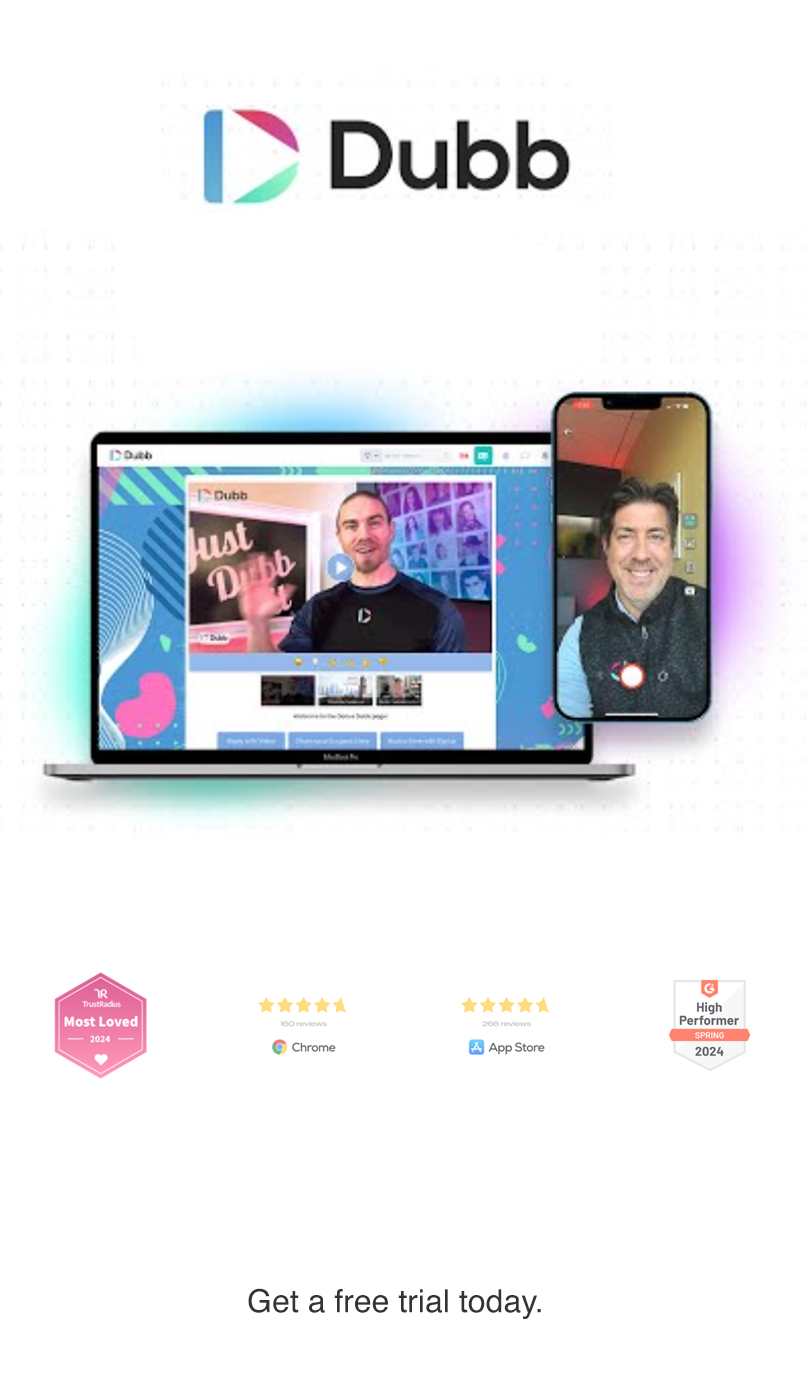One of the coolest things about digital marketing is that there are few hard and fast rules. The rise of the internet has democratized talent for individuals and businesses throughout the world. As long as you are providing significant value, you will find a group of passionate audience members that are likely to purchase your product or service.
However, while the rules are extremely few, certain best practices can increase your conversion rates. One of those best practices is leveraging landing pages for your video and/or email marketing campaigns.
Whether you are trying to have members of your audience become a recurring customer or are simply trying to obtain an audience member’s email list, you will find that a landing page is an extremely effective solution. Landing pages are easy to set up and can be one of the best ways to offer immediate value to your audience. Essentially, landing pages are cultivating a customer relationship which you hope will last for many years to come. They lead to more conversions and who doesn’t like that?
All of this is well and good. Nevertheless, there is a significant difference between theory and execution. You may recognize the power of landing pages, yet may not know exactly where to start. The features that you include—and don’t include—on a landing page can make a significant impact on its overall effectiveness.
Luckily, you have come to the right place. We at Dubb absolutely love talking about this topic. Our software automatically generates video landing pages for our clients, so we have extensive data on what converts and what doesn’t. Because of this, we invite you to take the insights we have learned from our experience and leverage them in your landing pages. Doing so will undoubtedly increase your conversion rate and get you one step closer to your video marketing goals.
Some Best Practices When Constructing Landing Pages
There are several common best practices that we see in the most successful landing pages. While you certainly have the freedom to shape them however you like, we highly encourage you to follow them—unless you have some extenuating circumstances for veering off course.
First, let’s talk about messaging. This is everything from the headline on your landing page to the few specific words on your form submission button. You can think about messaging the same way that you would think about a conversation with a new acquaintance. Yes, you want your new friend to get to know you, but you also want this person to trust you. Building up trust in such a short amount of time is difficult, but it is certainly possible.
One effective way to building trust is through exercising empathy. Immediately show your landing page visitors that you deeply, inherently understand the struggles that they are experiencing. And then from there, show your visitors that your company can remove this pain point from their lives.
Sure, it sounds straightforward. But there is a subtle art here of understanding your audience’s jobs to be done. The best way to do this is to have conversations with current and prospective customers, whether they are in-person, over the phone, or over video chat. Focus on the common problems that they face in their business lives. Understand these problems on a functional, social, and emotional level. Doing this will not only help you construct stellar landing pages but will actually help you iterate on future versions of your product or service.
Once you have gone through this process, you can start crafting the copy on your landing page. It helps to start with a “hero message” at the top of the screen, explaining the problem in one sentence and how your product or service can help address it. As your audience then scrolls down your landing page, provide more details about your product and service. Continue showing how you can provide value.
Messaging is certainly iterative with plenty of trial and error. But the more you do this, the more effective your landing page copy will be.
Next, leverage social proof on your landing page. Social proof is an extremely powerful way to increase your conversion rate. It works because you are using real people to show success in your product or service. Not only do you show that you have living and breathing customers, but you also show that your customers are extremely satisfied with your business.
According to one study, placing the logos of business customers on a company website can increase conversion rates by up to 400 percent. While you may not see a conversion rate this high, it is absolutely in your interest to tap into social proof on your landing page.
There are several ways to do this. As stated, you can simply include the logos of some of your most marquee customers. Beyond this, however, you can also include testimonials from some of your customers. Upon obtaining their permission, you can include their name, title, a professional photo, and a one or two-sentence quote about your company. Even better, you can have a video of your customer explaining how your product or service changed their life. However you go about it, don’t forget to incorporate social proof on your landing page.
From leveraging social proof, you should incorporate at least one call to action on your landing page. To put it simply, calls to action are the most important parts of your landing page. They are so critical because they move members of your audience down your marketing funnel. The further they move down your marketing funnel, the more likely they are to become actual customers.
You can have many different calls to action on your landing page. For instance, you can have calendar integrations, digital products, or even phone calls with a member of your team. On larger landing page websites, you may even want to consider including a squeeze page. This is a simple, basic page that has one or two simple calls to action that can move prospects down your funnel.
Whatever you decide, ensure that you have at least one call to action prominently displayed. If you are including more than one call to action, place your most important one at the top of your page. If you are looking to speak with warm prospects on the phone, think about including a calendar integration as your call to action. If you simply want to better educate your audience about your product or service, include an ebook or other digital product as your main call to action. Ultimately, think about what you want to accomplish with your landing page and design your call to action to help you accomplish that objective.
Finally, for every landing page that you create, embrace testing and learn from your data. Landing pages, along with all types of web pages, are extremely insightful because you can access a wealth of data about user behavior. Landing pages are also powerful because it is extremely easy to run experiments and tests. In combination, both of these attributes can lead to more conversions than through any other marketing medium. In fact, according to one study, correctly targeting and testing your landing page can increase conversion rates by up to 300 percent.
Therefore, it is absolutely in your best interest to take advantage of these attributes. Run A/B tests on different elements of your landing page. For instance, try changing the text or color to your call to action button and see how your audience responds. Change the copy of your hero message and see what happens. Don’t be afraid to launch tiny experiments to see how your audience reacts.
After launching your experiments, though, you will want to look at the data. Some metrics you will want to analyze include bounce rate, average session duration, and average views per session. While you don’t necessarily need to slavishly follow your data, it often is a good guide to changes that you should be made to increase your conversion rate. If you have a certain reason or intuition why you shouldn’t be following the data, don’t immediately discard it. In fact, it may be a better move in the long run.
A Game-Changing Tool in Your Toolkit
Landing pages aren’t necessarily new technology, but they remain extremely powerful in the world of digital marketing. They can make the difference between a prospective customer going to a competitor or a prospective customer becoming a repeat customer.
While you have unlimited freedom in designing your landing page, we encourage you to follow some (or all) of the best practices above. Doing so will help you avoid unforced errors and create the best converting landing pages possible.
Finally, if you would like help creating your own landing pages, Dubb offers a free automatic landing page creator. If you feel especially stretched for time, yet still want to leverage the power of landing pages, this may be a great option for you. To learn more about this and how Dubb can help you, click here.


